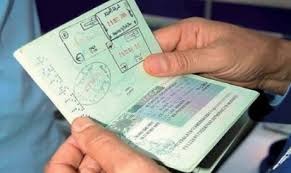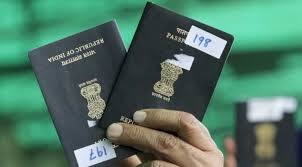Understanding the Process: Indian Visa for Guinean Citizens

Traveling to India has become increasingly accessible for citizens of various countries, including Guineans. If you’re a Guinean citizen planning to visit India, it’s essential to understand the process involved in applying for an Indian visa. The Indian visa for Guinean citizens offers a range of possibilities depending on the purpose of the visit. Whether for tourism, business, medical treatment, or education, there are specific guidelines and requirements you must follow to ensure a smooth visa application process.
Types of Indian Visas for Guinean Citizens
India offers several types of visas for foreign nationals, and Guinean citizens are no exception. The type of visa you apply for depends on the purpose of your visit. Below are the most common types of visas available for Guinean citizens:
- Tourist Visa: This is the most common visa type for travelers who wish to visit India for leisure, sightseeing, or family visits. Guinean citizens can apply for a tourist visa, which typically allows them to stay in India for a period of up to 90 days.
- Business Visa: If you’re traveling to India for business-related activities, such as attending meetings, conferences, or setting up a business, you’ll need to apply for a business visa. This visa is usually valid for a longer period compared to the tourist visa, and its duration may vary.
- Medical Visa: Guinean citizens seeking medical treatment in India can apply for a medical visa. This type of visa is granted to individuals who need to receive medical care at recognized hospitals in India. The medical visa also allows the patient to bring a companion, usually a family member or a caregiver.
- Student Visa: For Guinean citizens pursuing education in India, a student visa is required. This visa allows the applicant to stay in India for the duration of their academic course, whether it’s for undergraduate, postgraduate, or vocational training.
- E-Visa: India has introduced an e-visa system for citizens of many countries, including Guinea. The e-visa is a convenient way for short-term travelers to apply for a visa without having to visit the Indian embassy or consulate. This option is available for tourists, business travelers, and medical tourists. The e-visa typically allows stays of up to 60 days.
The Application Process for Indian Visa for Guinean Citizens
Applying for an Indian visa for Guinean citizens is a straightforward process, but it does require careful attention to detail. Below are the steps involved in applying for an Indian visa:
- Determine the Type of Visa: Before starting the application process, determine the type of visa you need based on your travel purpose. As mentioned, this could be a tourist visa, business visa, or another type, such as medical or student visa.
- Complete the Online Application: For most visa types, you’ll need to fill out an online visa application form. The official Indian visa website allows applicants to submit their information and details online. Make sure to fill out the form accurately, as any discrepancies may delay the processing of your visa.
- Submit Required Documents: Along with the completed application form, you will need to provide several documents to support your visa application. These documents may include:
- A valid passport with at least six months of validity.
- A recent passport-sized photograph.
- Proof of travel arrangements, such as flight bookings.
- Proof of accommodation in India.
- Financial statements to demonstrate your ability to support yourself during your stay.
- Additional documents specific to your visa type, such as an invitation letter for business visas or a letter of acceptance from an educational institution for student visas.
- Pay the Visa Fee: The visa application process requires payment of a non-refundable visa fee. The fee varies depending on the type of visa and the duration of your stay in India. It is important to check the current fee structure on the official Indian visa website or at the Indian consulate in Guinea.
- Attend the Visa Interview: In some cases, you may be required to attend a visa interview at the Indian consulate or embassy. During the interview, you will be asked questions related to your travel plans, finances, and other relevant details. It is important to answer honestly and provide any requested documents.
- Wait for Processing: After submitting your application, there will be a waiting period for your visa to be processed. The processing time may vary, but it usually takes around 7-10 business days for the application to be processed. In some cases, you may need to wait longer, depending on the volume of applications.
- Receive Your Visa: Once your visa is approved, you will be notified and can collect your visa from the embassy or consulate. For e-visas, you will receive an approval letter via email, which you can print and present when you arrive in India.
Key Considerations for Guinean Citizens
When applying for an Indian visa for Guinean citizens, there are several important factors to keep in mind to avoid delays or issues: INDIAN VISA FOR GUYANESE CITIZENS
- Visa Validity: Ensure that your passport is valid for at least six months from the date of your arrival in India. If your passport is nearing expiration, renew it before applying for the visa.
- Correct Documentation: Submit all required documents accurately. Incomplete or incorrect applications can lead to rejections or delays.
- Adhere to Indian Immigration Laws: Make sure you adhere to the rules and regulations of Indian immigration. Overstaying your visa or engaging in activities not allowed by your visa type can result in penalties or deportation.
- Apply in Advance: It’s advisable to apply for your Indian visa well in advance of your planned travel date. This allows enough time for any unforeseen delays in processing.
Conclusion
The Indian visa for Guinean citizens provides a gateway to explore India for various purposes, from tourism to business or medical treatment. By following the outlined steps and ensuring you meet all the requirements, you can enjoy a smooth visa application process. Whether you’re planning a short visit or a longer stay, India’s diverse culture, rich history, and vibrant economy are sure to make your journey worthwhile.




